 Billboard Liberation Front
explains warrantless wiretapping to the public.
Billboard Liberation Front
explains warrantless wiretapping to the public.
-jsq
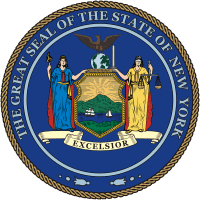 As I’ve
been predicting since October:
As I’ve
been predicting since October:
“We have requested information from the company via subpoena,” Jeffrey Lerner, a spokesman for Attorney General Andrew Cuomo, said Tuesday.So far it’s just a subpoena. We’ll see if it turns into a full-fledged lawsuit. And maybe Comcast could start cooperating with its own customers….Comcast said it was co-operating with the AG’s office.
— New York subpoenas Comcast on traffic shaping, Associated Press, February 26, 2008 at 4:08 PM EST
-jsq
PS: Why did the New York Times pick up this story only a day after the Canadian Globe and Mail?
 David S. Isenberg harps on one of my favorite points:
David S. Isenberg harps on one of my favorite points:
“…consumer, consumer, consumer . . . ”Apparently Martin hears only what he has been instructed to hear. He already demonstrated he doesn’t listen to Congress or the public; why should he listen to professional experts?. . . even when Ammori, Benkler, Wu have explained, “Citizen, participant, creator, innovator, investor . . . ”
— Kevin Martin at FCC Hearing, David S. Isenberg, isen.blog, 25 Feb 2008
-jsq
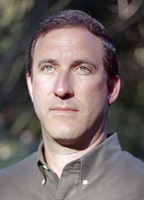 Apparently this WSJ opinion writer couldn’t actually argue with
Ed Markey’s net neutrality bill, so he made up a straw man:
Apparently this WSJ opinion writer couldn’t actually argue with
Ed Markey’s net neutrality bill, so he made up a straw man:
Imagine a town that has all sorts of gasoline pipelines running by it but only one gas pump. Rationing is inevitable. So are price controls.What’s especially amusing about this strawman is that it’s what the duopoly is planning as they do away with net neutrality, except it’s not first responders or governments that will get favored bandwidth: it’s Hollywood. Meanwhile, Markey’s bill doesn’t say any of that. It doesn’t include any regulation at all.Everyone gets equal amounts, except of course first responders like police and ambulances, which should get all the gas they want. And, well, so should the mayor. And if you can make a good business case that you work 60 miles away, you can file paperwork and perhaps pull some strings for more gas. How about those kids hot-rodding around town who can’t drive 55? They get last dibs, and maybe we can sneak in some gas thinner to slow down their engines and not waste gas.
— Internet Wrecking Ball, By Andy Kessler, Wall Street Journal, February 25, 2008; Page A15
Kessler invokes Orwell:
This is the essence of the Ed Markey’s (D., Mass.) Orwellian-named Internet Freedom Preservation Act of 2008, which would foist network neutrality on the wild and woolly Internet.Kessler maybe wasn’t around in the earlier days of the Internet, or he would know that net neutrality is what we used to have, until it got chipped away starting in about the year 2000, as the FCC failed to enforce the Unbundled Network Elements (UNE) of the Telecommunications Act of 1996, and reclassified cable modem access as an information service in August 2002, wireline broadband in August 2005, and wireless broadband in March 2007. The FCC stripped common carriage status from Internet provision, something never done before in the U.S. So what Markey’s bill is actually trying to do is to preserve the freedom the Internet used to have before the present administration and the duopoly systematically tried to do away with it. That’s the opposite of Orwellian: that’s the plain truth.
If Kessler did know Internet history, or had been around when we were making it, he would know not to write things like this: Continue reading
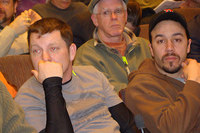 This appears to be the week for Comcast to really make a fool of itself.
This appears to be the week for Comcast to really make a fool of itself.
Comcast acknowledges that it hired people to take up room at an F.C.C. hearing into its practices.Some reports said the shills were Comcast employees, but it turns out many of them were hired off the street. They were given yellow highlighters to put in their shirt pockets so they could identify themselves to each other.— Grassroots Support? Or Astroturf? by Sam Gustin, Portfolio.com, Feb 26 2008
Comcast, the company that claims to understand the Internet so well it thinks faking TCP Resets is good network management (which is what that FCC meeting was about), apparently thought in this day of cell phone cameras and blog posts that nobody would notice….
-jsq
 On The Communicators on C-SPAN (23 Feb 2008), Marc Rotenberg of Electronic Privacy Information Center (EPIC)
made an interesting point.
Retroactive immunity for warrantless wiretapping could well mean to telcos that the law could change at the whim of the president, so they might be more apprehensive about cooperating with governmental wiretap requests.
After all, the current legal framework says they do have to cooperate
if served a warrant, but not without.
Such whims could mean they have to cooperate with any old request
or face retribution.
They may already think that, due to Joe Nacchio of Qwest claiming that his company was denied contracts for not cooperating as part of his appeal against an
insider trading conviction, which case itself is bogus if he’s right that he had reasonable expectation of such contracts.
It’s a funny thing when you subvert the rule of law and replace it with
a “unitary executive”: nobody knows where they stand anymore.
On The Communicators on C-SPAN (23 Feb 2008), Marc Rotenberg of Electronic Privacy Information Center (EPIC)
made an interesting point.
Retroactive immunity for warrantless wiretapping could well mean to telcos that the law could change at the whim of the president, so they might be more apprehensive about cooperating with governmental wiretap requests.
After all, the current legal framework says they do have to cooperate
if served a warrant, but not without.
Such whims could mean they have to cooperate with any old request
or face retribution.
They may already think that, due to Joe Nacchio of Qwest claiming that his company was denied contracts for not cooperating as part of his appeal against an
insider trading conviction, which case itself is bogus if he’s right that he had reasonable expectation of such contracts.
It’s a funny thing when you subvert the rule of law and replace it with
a “unitary executive”: nobody knows where they stand anymore.
Meanwhile, Patrick Philbin, identified in the on-screen legend only as a “Washington-area attorney” (the introduction did say he was formerly a Bush appointee in various positions), kept claiming that there wasn’t even any proof that any telcos had cooperated without warrants, while arguing that without retroactive immunity they wouldn’t cooperate. In addition to those positions being somewhat contradictory, if I’m not Cheney has said on the air recently that the telcos did cooperate, so I don’t know why Philbin continues this sort of obfuscation. Well, unless it’s the obvious: he’s protecting his former bosses.
The Communicators is very interesting because it one or two people half an hour to say what they mean in their own words. YMMV, but in this case it sure looked to me like Rotenberg was being very reasonable and standing for the rule of law, while Philbin was stonewalling using every legal subterfuge that came to his mind. This impression wouldn’t have been nearly as clear from a few sound bites.
-jsq
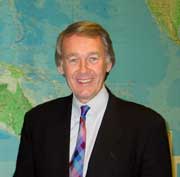 Rep. Ed Markey (D-MA) and Rep. Chip Pickering (R-MS) have
introduced the
Internet Freedom Preservation Act of 2008,
which will amend Title I of the Communications Act of 1934 to say
Internet freedom, commerce, innovation, participation, and speech
are the policy of the United States.
It’s interesting what this bill does not say.
It doesn’t specify any regulations, so that those who oppose net neutrality
don’t have a leg to stand on when they say net neutrality is all about
regulation.
It doesn’t say “net neutrality”: it says “freedom”, “marketplace”, “innovation”,
and other positive benefits.
(I think I’ll take a cue from Commissioner Copps and start referring
to Internet freedom.)
It doesn’t say “consumers” except a few times, including once where that word
is immediately qualified by
Rep. Ed Markey (D-MA) and Rep. Chip Pickering (R-MS) have
introduced the
Internet Freedom Preservation Act of 2008,
which will amend Title I of the Communications Act of 1934 to say
Internet freedom, commerce, innovation, participation, and speech
are the policy of the United States.
It’s interesting what this bill does not say.
It doesn’t specify any regulations, so that those who oppose net neutrality
don’t have a leg to stand on when they say net neutrality is all about
regulation.
It doesn’t say “net neutrality”: it says “freedom”, “marketplace”, “innovation”,
and other positive benefits.
(I think I’ll take a cue from Commissioner Copps and start referring
to Internet freedom.)
It doesn’t say “consumers” except a few times, including once where that word
is immediately qualified by
(i) access, use, send, receive, or offer lawful content, applications, or services over broadband networks, including the Internet;Let’s see, if “consumers” can send their own content, applications, and service, they’re not really consumers in the traditional sense, now are they?
This is all very nice, in that Markey and Pickering apparently get it about what Internet freedom is about. However, why does this bill have no teeth, unlike Markey’s bill of last year or the Snowe-Durgan bill before that? Continue reading
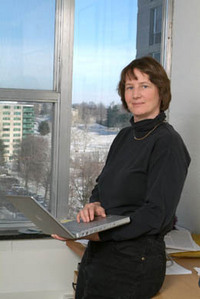 Prof. Jean Camp points out that:
Prof. Jean Camp points out that:
This is ironically exactly the mechanism used by the Great Firewall of China. When China does it, we call it “censorship”.She points to a paper that details that the Great Firewall of China uses exactly the same forged TCP Reset method that Comcast uses, and how to work around such damage: Continue reading— Re: [IP] Comcast FCC filing shows gap between hype, bandwidth, Jean Camp, Interesting People, 14 Feb 2008
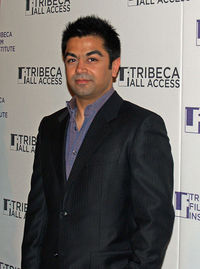
Aswin Navin by David Shankbone |
Rep. Edward J. Markey (D-Mass.), chairman of the House Energy and Commerce Committee’s subcommittee on telecommunications and the Internet, plans to introduce a bill today calling for an Internet policy that would prohibit network operators from unreasonably interfering with consumers’ right to access and use content over broadband networks. The bill also calls for the FCC to hold eight meetings around the nation to assess whether there is enough competition among network providers and whether consumers’ rights are being upheld.Markey gets it. Too bad the FCC doesn’t.“Our goal is to ensure that the next generation of Internet innovators will have the same opportunity, the same unfettered access to Internet content, services and applications that fostered the developers of Yahoo, Netscape and Google,” Markey said in a written statement yesterday.
— Comcast Defends Role As Internet Traffic Cop By Cecilia Kang, Washington Post Staff Writer, Wednesday, February 13, 2008; Page D01
Meanwhile, part of Comcast’s defense is: Continue reading
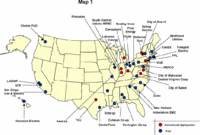 U.S. Commerce Secretary hails “dramatic growth of broadband” in the U.S.,
citing a report from National Telecommunications and Information Administration (NTIA).
That report not only uses the U.S. tinyband definition of 256Kbps as
“broadband”, it still uses ancient metrics such as this:
U.S. Commerce Secretary hails “dramatic growth of broadband” in the U.S.,
citing a report from National Telecommunications and Information Administration (NTIA).
That report not only uses the U.S. tinyband definition of 256Kbps as
“broadband”, it still uses ancient metrics such as this:
By December 2006, 91.5 percent of ZIP codes had three or more competing service providers and more than 50 percent of the nation’s ZIP codes had six or more competitors.So any provider that has service available to at least one user in a ZIP code is counted as a “competitor”.— Gutierrez Hails Dramatic U.S. Broadband Growth, Government Technology, Feb 1, 2008, News Report
Meanwhile, the ARRL says the NTIA report inflates broadband over powerline (BPL) figures: Continue reading